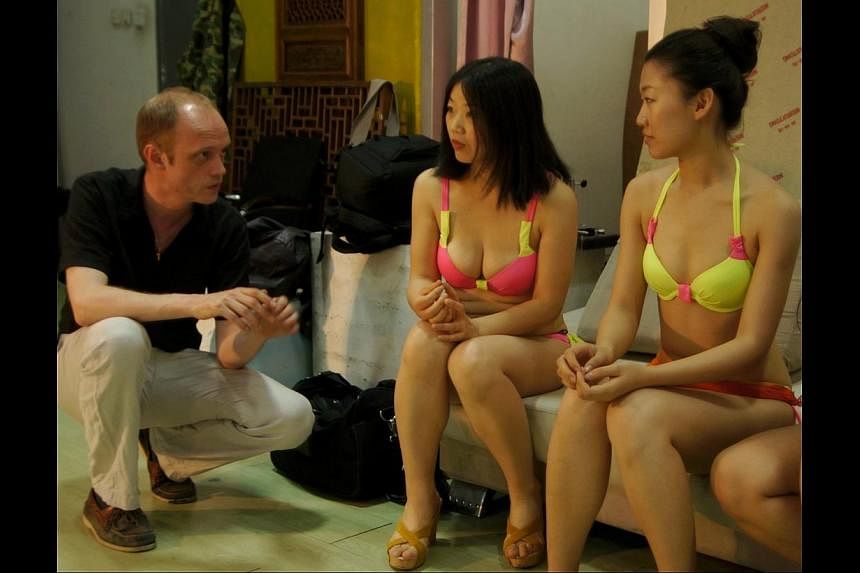The world is coming to China and the comedy, This Is Sanlitun (2013), pokes fun at how, in Beijing, the dreams and fetishes of Westerners collide with the equally bizarre stereotypes that locals hold about foreigners.
With setups that vary from the wry to the slapstick, the shoestring-budget satire mocks the way a certain type of Chinese female will throw herself at Westerners and how English schools will hire any Caucasian, regardless of qualifications or country of origin.
Aspiring expatriates, on the other hand, expect Beijing's streets to be paved with gold.
This Is Sanlitun will be shown here on Friday as part of the European Union Film Festival.
The film-maker behind the project, Robert Douglas, tells Life! that Beijing, more than most cities, appears to be a magnet for foreigners who arrive with high hopes but few skills.
He says on the telephone from his home in Beijing: "I've been to Shanghai and Hong Kong, and while I've never been to Singapore, I can imagine them to be similar in that people go there for business, to do work.
"In Beijing, there are foreigners just wandering around. There are students here on an extended holiday and the rest of them just take token white-guy jobs. You have Russians teaching English. A lot of expatriates here are dreamers and the dream isn't going anywhere."
An example of a "token white-guy job" is shown when the main character, Englishman Gary, a hair tonic salesman, is hired by a restaurant owner to be its "French chef" and paraded in front of Chinese investors. After they leave, Gary is shown the door.
Shot in fake documentary or "mockumentary" style, the film takes its title from the Sanlitun embassy district, which is filled with bars and cafes catering to Westerners.
It is Iceland's entry to the European Union Film Festival because Douglas, the director, co-writer and co-producer, is of Irish-Icelandic descent and part of the film's US$180,000 (S$225,000) budget came from the Icelandic Film Fund, with the rest from the film-maker's friends.
Douglas, 40, himself a bona fide Beijing expatriate, arrived in 2007 from Iceland to be with his family. His ex-wife, a Chinese national, had found a job in the city and took their two children with her.
Before that, he spent the early part of his career making films in Iceland, but the 2008 economic crisis dried up film funds, so he decided to stay on in the Chinese capital, setting up a firm to do commercial film work.
This Is Sanlitun is his first feature made outside of Iceland and his first full- length work in English.
The film's two main characters are Gary, a fresh-off-the-boat expatriate, and the more seasoned Frank, a selfprofessed China expert who is all bluster. After a chance meeting, the jobless Frank latches on to Gary - and his wallet - by offering to be his mentor.
Along the way, they meet expatriates such as Jonathan, who is a television celebrity for no reason other than the fact that locals are endlessly amused by the sight of a Caucasian who can speak Mandarin like a native.
Gary is played by Carlos Ottery, a Briton who works as a journalist for an expatriate magazine, and Frank is played by Christopher Loton, an Australian who works in sales for an industrial computer company. The Chinese actors were either friends or recruited through advertisements. Loton, Ottery and Douglas share screenwriting credits.
Says Douglas: "We took things that were familiar to us for the story. Carlos taught English in China. All three of us know someone like Frank, the China expert who claims to know everything better than anyone else. It's an exaggerated version of reality."
Because the film was shot guerilla- style, without clearance from the Chinese government, it cannot be released in theatres or on television in China. It would have taken too long to get permission, says Douglas.
But it is available on the Baidu portal for a fee and the warm response from Chinese Web users, with 80 per cent of commenters leaving positive reviews, has "exceeded all my expectations", he adds.
"It made me think, 'Oh, maybe I should've gotten permission'," he says, sounding a little regretful.

